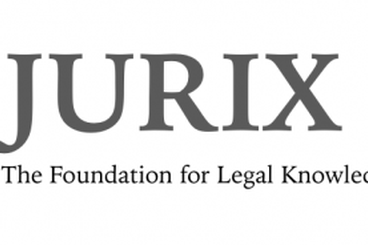AI4Legs 2023 - second edition: AI for Legislation

Date:
Event location: Faculty of Law, Maastricht University Bouillonstraat 1–3 6211 LH Maastricht - In presence and online event
Programme AI4Legs II edition - 18th December 2023

Can the Law be written by GPT-4? Can the members of the parliament use ChatGPT to improve their knowledge of society's needs? Can the Law be converted into programming code using AI/ML and logic formulae without losing legal theory principles, legal linguistic expressivity, and Constitutional principles? Can the digital format of Law be equally valid and considered a legitimate Legal Source, and under which conditions? Can a whole Legal System –including its diachronic dimension – be managed in a digital manner by using knowledge Graphs, Semantic Web techniques, Legal ontologies, and Logic theory? Can a such translation be made automatically executable using Smart Contracts and immediately enforceable? How to render the “Law as Code” to the common citizen in a simple, yet transparent and accountable manner? Can an explicit normative statement be expressed natively in code or in non-linguistic signs (e.g., icons)? Which principles are necessary in order to not compress the Rule of Law and Democratic principles? What new legal theory is needed for a deep digital transformation of the legislative process that produces a digital format of Law with an innovative generative and constitutive modality instead of converting text (logos) into code? How to produce Law in non-textual norms while preserving normativity? How to improve the legislative process using AI/ML for better regulation?
This workshop would like to discuss these challenging questions with interdisciplinary instruments coming from the philosophy of law, Constitutional law, legal informatics including AI & Law, computational linguistics, computer science, HCI, and Legal design. We intend also to discuss the state of the art of the most advanced applications of AI in support of better regulation, and law-making system, aiming to find answers to these questions.
Organizer: Monica Palmirani (Research Institute for Human-Centered Artificial Intelligence, ALMA-AI, University of Bologna)
This workshop is organized inside of the ERC HyperModeLex funded by the European Commission Grant ID 101055185.
• Fundamental legal concepts and principles concerning the eLegislation
• Theory of law and ICT in the legislative process
• Legal XML and XML Rules for the legislative process
• Generative AI in the legislative process
• AI/ML for Legislative Process
• Government Linked Open Data (GLOD)
• Legal ontologies and legal knowledge graphs for better regulation
• Smart Data and the Semantic Web in legislative domain
• Governance and deliberative models of democracy using AI
• Blockchain distributed ledger technology for law-making process
• Visualization of legal knowledge for transparency in legislative domain
• NLP tools for capturing legal knowledge in legislative domain
• Legal language and NLP representation
• Legal design and visualization of the legislative knowledge
• Modelling the rule of law in the law-making process
• Interpretation modelling of legislation
• Data analytics for legislation
8.30-9.00 - Registration
9.00-9.30 - Keynote speech:
Willy Van Puymbroeck, European Commission, DG DIGIT
9.30-9.50 Pier Francesco Bresciani, Assistive AI for Law-Making: A Constitutional Analysis, University of Bologna
9.50-10.10 Chantal Bomprezzi, Blockchain technology for legislation: preliminary considerations, University of Bologna
10.10-10.30 Silvia Brambilla, FrameNet and Legal Definitions, University of Bologna
10.30-11.00 – Coffee Break
11.00-11.20 - Keynote speech: Claudio Fabiani, AI and Parliaments: The case of European Parliament Research Service, European Parliament
11.20-11.30 Emilio De Capitani, Former Secretary of the EP Civil Liberties Committee (LIBE) (remote)
11.30-11.50 Alexandre Alves, André Nascimento, Rafael Mello and Pericles Miranda, Automatic simplification of legal texts in Portuguese using machine learning, Universidade Federal Rural de Pernambuco
11.50-12.10 Michele Corazza, Information retrieval for AI-assisted legislative drafting, University of Bologna
12.10-12.30 Guzyal Hill, ChatGPT v Australian Law Council, Charles Darwin University (remote)
12.30-13.30: lunch
13.30-14.00 - Keynote speech:
Marc Küster, Publication Office of the European Union
Willy Van Puymbroeck, European Commission, DG DIGIT
Pier Francesco Bresciani, University of Bologna
Chantal Bomprezzi, University of Bologna
Silvia Brambilla, University of Bologna
Claudio Fabiani, European Parliament
Emilio De Capitani, Former Secretary of the EP Civil Liberties Committee
Alexandre Alves, André Nascimento, Rafael Mello and Pericles Miranda, Universidade Federal Rural de Pernambuco
Michele Corazza, University of Bologna
Guzyal Hill, Charles Darwin University
Marc Küster, Publication Office of the European Union
Draft paper Springer LNAI format 10 pages: Nov. 10th 2023--> EXTENDED Nov. 20th 2023 AoE
Workshop presentation: tbd
Notification of acceptance: Nov. 27th 2023
Camera ready (Springer LNAI): December 20th 2023
Publication (selected papers) LNAI: AICOL volume, Springer.
Papers should be in English and must be submitted at AI4Legs Easychair site: https://easychair.org/conferences/?conf=ai4legsii
Papers will be peer-reviewed by at least by 3 PC members before being accepted for presentation at the Workshop.
A second peer review-round will be carried out before submission to the next AICOL volume at LNAI.
Paulo H. C. Alves, Pontifical Catholic University of Rio de Janeiro
María Luisa Alvite Díez, Universidad de León
Pompeu Casanovas, UAB
Giuseppe Contissa, University of Bologna
Jaime Delgado, Universitat Politècnica de Catalunya
Nicoletta Fornara, Università della Svizzera italiana, Switzerland
Guido Governatori, Independent researcher
Mustafa Hashmi, Data 61 , CSIRO
Silvia Llorente, Universitat Politècnica de Catalunya
Marco Manna, Department of Mathematics and Computer Science, University of Calabria
Mercedes Martinez-Gonzalez, University of Valladolid
Grzegorz J. Nalepa, Jagiellonian University
Jose Palma, University of Murcia
Marta Poblet, RMIT University
Radim Polčák, Masaryk University
Shashishekar Ramakrishna, EY - AI Labs / Free University of Berlin
Livio Robaldo, Legal Innovation Lab Wales, University of Swansea
Salvatore Sapienza, University of Bologna
Giovanni Sartor, EUI/CIRSFID
Jaromir Savelka, Carnegie Mellon University
Gijs van Dijck, Maastricht University
John Zeleznikow, La Trobe University